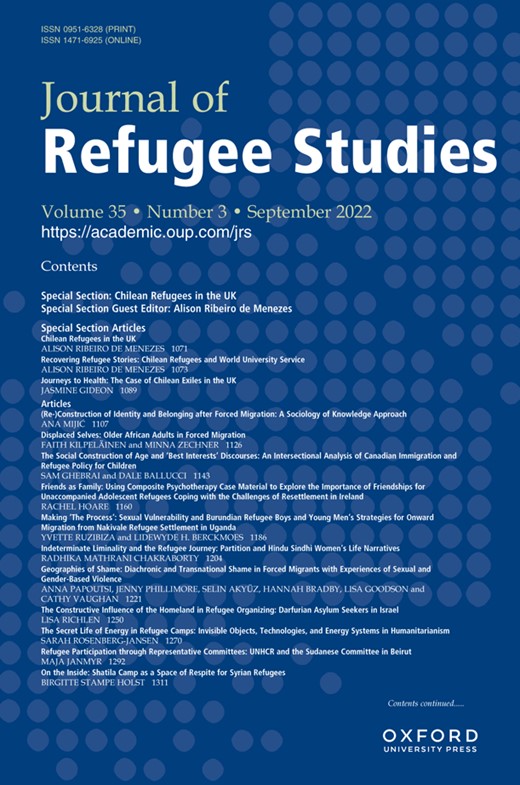-
Views
-
Cite
Cite
Radhika Mathrani Chakraborty, Indeterminate Liminality and the Refugee Journey: Partition and Hindu Sindhi Women’s Life Narratives, Journal of Refugee Studies, Volume 35, Issue 3, September 2022, Pages 1204–1220, https://doi.org/10.1093/jrs/feac018
Close - Share Icon Share
Abstract
This article explores the refugee journeys of Hindu Sindhi women who were displaced during the 1947 Partition, and the continuing sense of liminality, or ‘in-between-ness’, engendered by their displacement. Refugee journeys are most often framed as a transformative, connective phase between homeland and hostland. However, in these life narratives, the journey did not emerge as an ‘in-between’ connective phase but instead stretched beyond arrival and settlement in India. This article thus proposes the concept of ‘indeterminate’ liminality for the protracted refugee journey, through a focus on its spatial and temporal aspects. The idea of journey emerges as a scaffolding for these women’s life narratives, as a series of multiple movements and claims to home spaces as they navigated gendered threats and uncertainties. The connection and intersections between past and present in their life narratives demonstrate how the liminal experience is not temporally bound between departure and arrival but extends across the life course.


